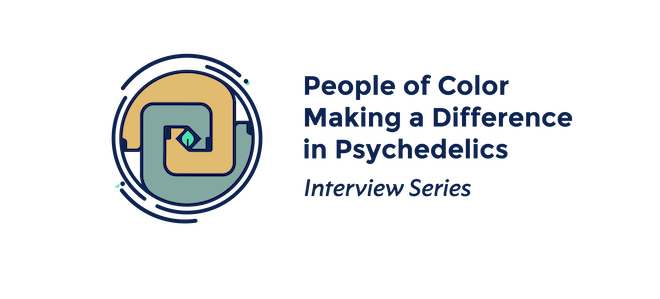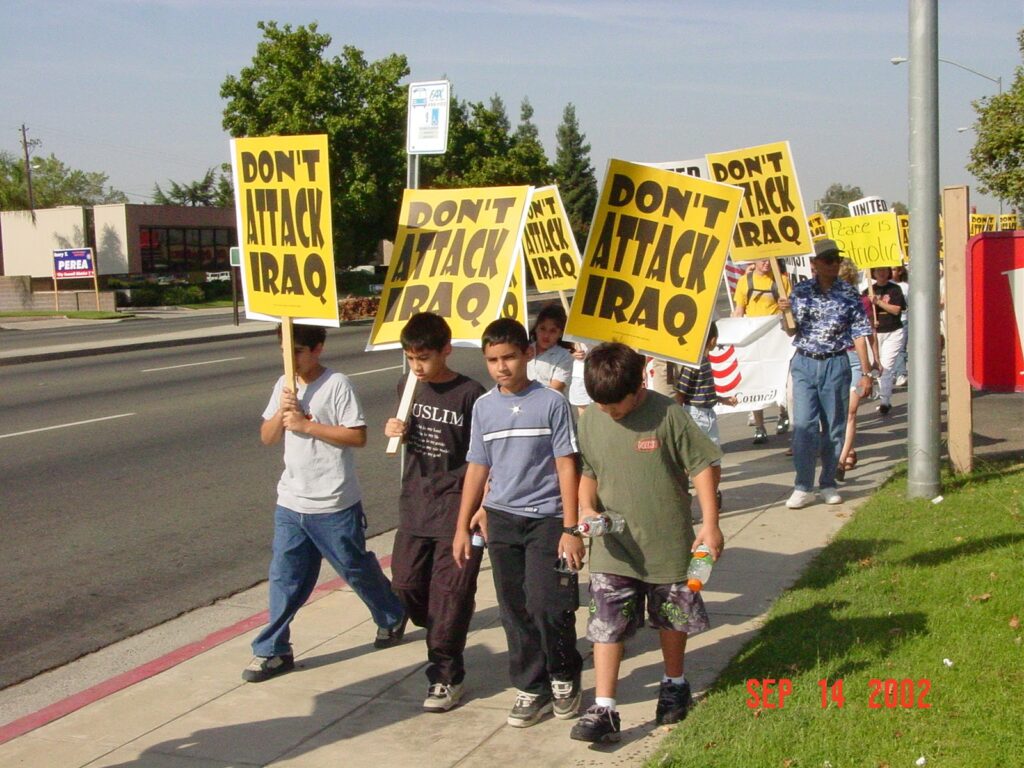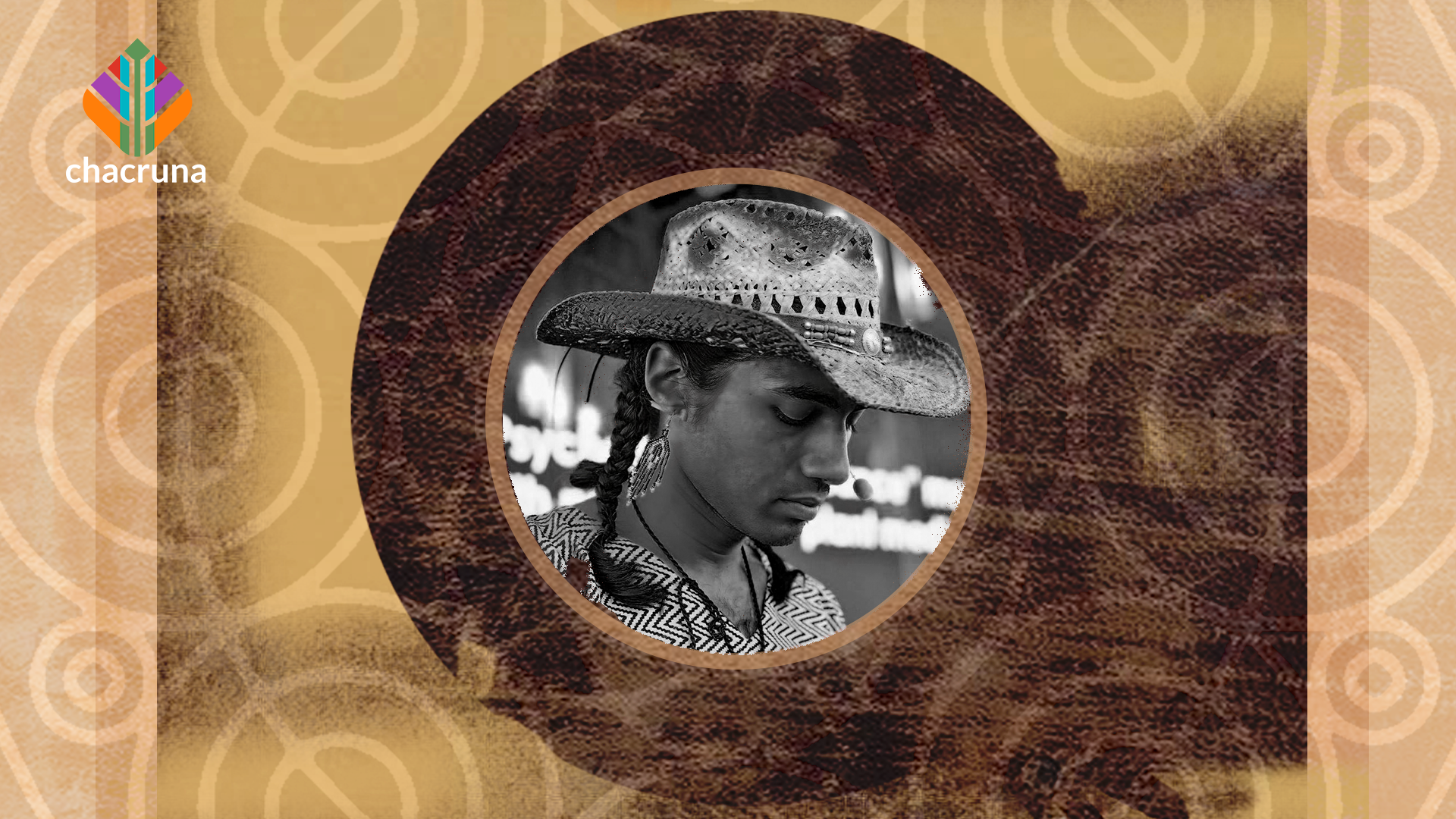- Entheogens, the African Diaspora, and BIPOC communities with Kufikiri Imara - January 20, 2021
- Innovating Native American Health Care Using Culture and Technology With Sutton King - January 11, 2021
- Navigating the Personal and Political in MDMA-assisted Psychotherapy with Sara Reed - December 29, 2020

Ismail Lourido Ali serves as Policy & Advocacy Counsel for the Multidisciplinary Association for Psychedelic Studies (MAPS), where he supports the development and implementation of strategies to create legal access to psychedelic substances in medical, sacramental, and personal contexts.
Given that Ismail Lourido Ali was, in his words, “anti-mainstream” in his youth, he even finds it ironic that he has found himself trying to figure out how this “mainstreaming psychedelics” could actually work with MAPS.
MAPS has spearheaded a movement to bring psychedelics into the “mainstream,” a word that has become ubiquitous across the discourse about psychedelics as the ultimate goal or nightmare. Given that Ismail Lourido Ali was, in his words, “anti-mainstream” in his youth, he even finds it ironic that he has found himself trying to figure out how this “mainstreaming psychedelics” could actually work with MAPS.
However, as a Muslim-American growing up in the post 9/11 era, politics and spirituality were a couplet at the center of Ali’s life. His parents emigrated from Colombia and Pakistan. From a young age, his family was politically active and worked with organizations that promoted interfaith dialogue.

“I was not abstractly learning politics,” Ali told us.
“I was not abstractly learning politics,” Ali told us. “I was very angry as a teenager because I witnessed my family and the Muslim community go through a disillusionment. What drew them to the U.S. is what ended up turning against them. What my experimentation with psychedelics did,” he continued, “was turn that anger into curiosity.”
In this interview, he talks about his journey as a politically and spiritually driven Muslim-American post 9/11, shaping drug policy from within, accessibility and equity, and what mainstreaming psychedelics means to MAPS.
Politics and spirituality were interconnected ideas. Thus, Ali’s approach to drug policy law emerged from living in a reality that was a multiverse of perspectives. In this interview, he talks about his journey as a politically and spiritually driven Muslim-American post 9/11, shaping drug policy from within, accessibility and equity, and what mainstreaming psychedelics means to MAPS.
Maria Mocerino: How did you get involved with MAPS?
Ismail Lourido Ali: What landed me in MAPS and, more broadly, the psychedelic field was a long arc of what began in my personal life and continued with an opening that was occurring in the legal field around drug policy.
MM: Where did you grow up?
IA: I was born in 1990 and raised in Fresno, California. My father was born in India and raised in Pakistan from a very young age and then, came to the U.S. to study electrical engineering in the 80s. He met my mother, born and raised in Colombia, who had decided to pursue her dentistry practice in the U.S. with the rest of her family. Our larger social community was first-generation, or recent immigrant Muslims, from all over the world.
MM: You grew up in a family that was politically active…
My parents got to the U.S. thinking that they were going to a stable place with a lot of economic opportunities, which they found, but political stability? Not so much. After 9/11, my father and I spent a lot of time working with different religious groups.
IA: My parents got to the U.S. thinking that they were going to a stable place with a lot of economic opportunities, which they found, but political stability? Not so much. After 9/11, my father and I spent a lot of time working with different religious groups. I was part of the Interfaith Alliance. We were marching against the Iraq War in 2002.
In 2004, I was confronted by an elder Vietnam War vet after swim practice while I was eating ice cream. I was wearing a shirt that said “Muslim” on it because, at the time, I was into showing people in the United States that not all Muslims were terrorists. It made me upset because I didn’t know how to respond. I decided, then, that I would educate myself about my socio-political context and dialogue with people that may not agree with me.
It was then that I had received my first death threat. A letter was sent to my high school there I had done an article about what it was like being a Muslim American teenager growing up in Fresno after 9/11.
In 2006, I was 16. I had started doing more public dialogues with the mosque that I worked with. It was then that I had received my first death threat. A letter was sent to my high school there I had done an article about what it was like being a Muslim American teenager growing up in Fresno after 9/11. It was then that I decided that I was going to get serious about protecting myself.
MM: What was it about your experience growing up that gave you your sense of politics?
IA: Specifically, the passage of the PATRIOT Act, in 2001.
My personal statement for law school was about surveillance and encroachment on civil liberties on domestic and foreign soil. My first job out of law school was with Muslim Advocates, back in 2014, working alongside lawyers fighting the second circuit case of innocent Muslims that were suing NYPD. The second round of Wikileaks information also came out that year.
In 2011, everyone learned that there was massive spying happening against Muslims all over the U.S. In 2014, we learned that it was happening to everybody.
In 2011, everyone learned that there was massive spying happening against Muslims all over the U.S. In 2014, we learned that it was happening to everybody. I remember thinking: Damn. We knew all along. As long as we were able to erode the civil liberties of some people, no one’s civil liberties are safe. Even “ordinary” White Americans were getting spied on.
MM: How did you, then, get into drugs?
IA: I was anti-drug for a while, but I was seeking something deeper, something beyond these daily practices and the angst and anger I was feeling.
IA: I was anti-drug for a while, but I was seeking something deeper, something beyond these daily practices and the angst and anger I was feeling. I started experimenting with substances when I was 15 and found access to a certain kind of spiritual truth that I was not able to access as a young Muslim person who was trying to pray. Then, I did my research. I found out that I had been lied to my whole life about these drugs.
My mother grew up in Cali, Colombia. When she left in 1986, people would tattoo or wear jewelry with their blood type on them, because random cartel violence was happening so broadly around the city.
A lot of my late teens and early twenties were characterized by conflict with my mother around my experimentation. My mother grew up in Cali, Colombia. When she left in 1986, people would tattoo or wear jewelry with their blood type on them, because random cartel violence was happening so broadly around the city. She was super afraid of drugs. I didn’t really appreciate that or understand it, because, in my mind, “the system was fucked, everything is a lie, I’m going to do whatever I want.”
In my early 20s, I realized that I wasn’t just doing this to break rules and be rebellious. There was a benefit to my alignment as a person. They were helping me to see that there was something beyond anger and questioning these fundamental things that had carried me. This idea of relational consciousness emerged for me and developed.
Psychedelics helped me to shift my angst to curiosity.
People can come from radically different cultures, beliefs, ideologies, and still, not just get along, but do great things together. I saw that in my family and the communities that I was around. Psychedelics helped me to shift my angst to curiosity. That’s when I became more drawn to this as a practice.
MM: What was happening drug policy-wise at this time?
The cannabis movement started to be represented by lobbyists and industry more so than activists, and that’s continued ever since. I made a decision then, that I did not want to do work around cannabis, but rather psychedelics.
IA: In 2016, Prop 64 passed in California and legalized the adult use of marijuana. That was the really big shift in American drug policy. The cannabis movement started to be represented by lobbyists and industry more so than activists, and that’s continued ever since. I made a decision then, that I did not want to do work around cannabis, but rather psychedelics.
I took a job at ACLU of Northern California under the Drug Policy Project. At that point, I didn’t know if this was going in the right direction (laughter).
MM: Meaning that, from that point forward, cannabis became a treatment-for-sale model. Do you feel that psychedelics could exist or create another model?
IA: Just to unpack that: Prior to Prop 64 passing, the practice of “compassionate distribution” of cannabis was not just commonplace, but it was quite widespread. These programs were made to deliver cannabis for free to people with terminal illnesses and cancer. That became impossible under the regulatory scheme that was put forward by Prop 64.
We cannot utilize one model as the baseline with psychedelics; we need to make space for multiple points of entry into the playing field. We can’t treat everything as if it’s going to fall within a corporate, capitalist infrastructure.
We cannot utilize one model as the baseline with psychedelics; we need to make space for multiple points of entry into the playing field. We can’t treat everything as if it’s going to fall within a corporate, capitalist infrastructure. If we do that, then cooperatively-owned or non-for-profits such as these programs won’t be able to function.
MM: What do you mean by multiple points of access?
IA: The binary of profit vs non-profit is a little too simple. I think what people are really worried about is the monopolization and corporatization of psychedelics. Unethical corporate practices that prevent competition or access.
A year ago, people were so up in arms about Compass Pathways. I remember thinking: Damn. We’re going to look back on this in five years and think how quaint it was that we only had to worry about one big for-profit actor in the space.
You know? There are already half a dozen huge companies all over the world that are starting to invest in this work. I could put all of my energy into being upset that there is “no way around this situation.” Or, I can contribute in whatever way I can to move all the moving pieces in a certain direction.
In this case, from a policy perspective, the first step in creating any model, whether it involves payment or not, is reducing criminalization. How do we make it so law enforcement is not involved in the decision-making process?
In this case, from a policy perspective, the first step in creating any model, whether it involves payment or not, is reducing criminalization. How do we make it so law enforcement is not involved in the decision-making process?
MM: Recently, an article has been written critiquing MAPS about working with people and organizations that uphold systemic racism, like Western medicine, or accepting support and resources with questionable ties. What did you think about this?
IA: Some people claim that engaging with the pharmaceutical complex or modern medicine or American health care systems inherently perpetuates oppression. I agree with that. However, there is no such thing as doing no harm because of the way our society and world have been structured. Working with any superstructure in an industrialized society, whether that be government, military, or corporations, and merely living, has impacts, sometimes negative.
I can see how MAPS engages with structures and narratives that do not have a completely neutral moral impact, and I think it is important to stand behind what we’re doing.
MM: You also speak about “finding freedom in the midst of oppression.” Can you talk a little about that idea and how it relates?
And I believe that our most actualized selves will be most accessible if our environment is fighting for us. That’s the long arc of justice or the future that I’m looking at.
IA: On one level, I feel like there is a future that we can create in which all people are free from oppression, are resourced and able to thrive, and fully access their most actualized selves. And I believe that our most actualized selves will be most accessible if our environment is fighting for us. That’s the long arc of justice or the future that I’m looking at.
Individual psychotherapy won’t cure racism, so this isn’t just about giving people individual healing and letting the systemic stuff slide. However, we have a story that our whole actualized selves are not accessible in an oppressive state. It’s partially true, but if there are tools that allow people to experience actualization, then I do think that the bigger picture is more possible because more people will have access to it.
MM: What’s the strategy, then, in terms of policy?
What we’re trying to do at MAPS is simple. At its core, it’s healing from trauma, and that every single person should have access to healing. Full stop.
IA: I see the strategy as one that expands rather than moves the Overton window. MAPS is in a unique position. We don’t have to move it in any direction. What we’re trying to do at MAPS is simple. At its core, it’s healing from trauma, and that every single person should have access to healing. Full stop. That value can be interpreted as both mainstream—the most benefit for the most amount of people—and a cause that people with political disagreements can align around.
MM: What is MAPS doing right now in the arena of access and marginalized communities such as people of color?
Right now, we’re putting in efforts to ensure that, when MDMA is legal, a critical mass of therapists of color are a part of the broader therapist cohort so that people who are seeking this therapy are able to be paired with providers that are competent.
IA: Right now, we’re putting in efforts to ensure that, when MDMA is legal, a critical mass of therapists of color are a part of the broader therapist cohort so that people who are seeking this therapy are able to be paired with providers that are competent. There is a reality that certain populations need specialized care: Native Americans, Black people, and also other identity classes such as refugees, queer, etc., who may have other needs in addition to their racial identity.
We recognize if we fail to bring MDMA forward in an equitable way that challenges health inequality, then it will be inevitable that we perpetuate the disparities in health because of our position. That’s not a moral judgment, in my opinion. It’s the reality of the field that we’re playing in.
There are a lot of benefits and risks that come out with these substances. Ultimately, that’s why I’m willing to sit in the paradox of working at an organization that’s trying to expand rather than push the Overton window.
There are a lot of benefits and risks that come out with these substances. Ultimately, that’s why I’m willing to sit in the paradox of working at an organization that’s trying to expand rather than push the Overton window.
MM: How?
IA: Can someone buy these substances legally without worrying about their safety? Can they go somewhere for eight hours to have this medicine? That’s one side of it. But then, do people even believe that they can heal? Do they have the imagination to believe that there is a way to be that is not the way they have been? That’s a hard fight.
That’s why MAPS has pursued a strategy of working with veterans, partially because of how drugs have been situated in the American consciousness.
The mainstream, in this culture, values military service and patriotism. If people who have experienced this level of trauma, pain, and suffering can heal, you can heal too. It’s a limited, flawed strategy, but that’s part of it.
MM: Do you feel like the modules being created, such as the MDMA-assisted psychotherapy program, will move the Western medical system into a healthier place?
I think that MDMA psychotherapy is the beginning of a Western shamanic medicine tradition. It’s an attempt to bring modern medicine into a more naturalistic state.
IA: I think that MDMA psychotherapy is the beginning of a Western shamanic medicine tradition. It’s an attempt to bring modern medicine into a more naturalistic state. We’re seeking new ways to build and elevate these other ways of healing, which is why it’s so important for the psychedelic industry, as it emerges, to be in solidarity with all the people who are trying to carry this knowledge.
I think there is a deeper recognition that healing, health, or wholeness is beyond what we consume and what tweaks we can do to our brain chemistry. How do we relate to the people who are working with us? That’s a deeper inquiry that the psychedelic medicine field is engaging with right now.
Art by Mariom Luna.
Take a minute to browse our stock:
Did you enjoy reading this article?
Please support Chacruna's work by donating to us. We are an independent organization and we offer free education and advocacy for psychedelic plant medicines. We are a team of dedicated volunteers!
Can you help Chacruna advance cultural understanding around these substances?
















